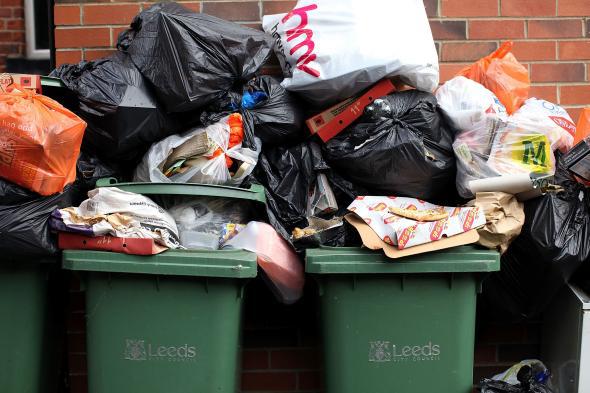This post originally appeared on Inc.
Jimmy Contreras has started three waste-hauling companies. His most recent is called RJ Waste Recovery, which he co-founded with his wife, Ruth. Based in Charlotte, North Carolina, Contreras hopes the startup will help businesses cut their costs and recycle more.
“It’s called an addiction—once you get garbage in your blood,” says Contreras. His biggest challenge is winning clients in an industry that has long been dominated by companies like Waste Management and Republic Services, which have a combined market share of nearly 40 percent, according to data from IBIS World. Contreras, by contrast, employs 50 contract workers and counts roughly 200 accounts across North Carolina and parts of South Carolina.
RJ Waste Recovery is one of the 5,000 haulers that have benefited from working with Rubicon Global, a broker of sorts that steals business away from industry giants, offering them cheaper rates to work with startups. The company’s website and mobile apps connects haulers to customers, and can guarantee pickup within the hour. On average, Rubicon claims it can save its clients—which include 7-Eleven and Wegmans—about 30 percent of what they would otherwise spend.
Rubicon claims it saves customers money because the incumbent players inflate prices, so businesses are often paying more than they need to be. The startup finds local alternatives, which typically face lower transportation costs. It helps that these haulers avoid landfills when possible, which charge dumping fees; they save money by composting, or using anaerobic digestion.
“Typically, the independent hauler has been displaced, because it lacks the scale and the national footprint to compete,” says Nate Morris, Rubicon’s co-founder and CEO. By leveraging technology, Rubicon can give small businesses a better shot at success. (Morris has worked closely with Oscar Salazar, the logistics pro and former CTO of Uber.) In the waste industry, that’s no small bargain: By 2020, trash hauling is projected to reach $2 trillion in global sales.
“Rubicon has the protection of an industry that’s never going away,” adds Morris. “And one of the places that investors like Warren Buffet and Bill Gates put their money in uncertain times is in the waste sector.”
To his point, as of 2014, the Bill and Melinda Gates Foundation owned about 18.6 million shares of Waste Management, or roughly 4 percent of the company.
Waste Management owns and operates landfills, and therefore brings in revenue through filling them up, explains Morris. A company like RJ Waste Recovery tries to avoid landfills where possible, diverting waste in other, more sustainable ways. “It’s not profitable for companies like Waste Management to recycle,” Morris says. “They lose money by taking trash to recycling facilities.”
Rubicon helps small companies achieve scale through Rubicon Pro, a suite of app-based tools that are becoming available to haulers this month. Rubicon can source discounted fuel, tires, insurance, and auto parts, for example, through partnerships with Fuelman and O’Reilly Auto Parts. The app can also help haulers find the quickest routes—in the event of construction, or an accident, say—and a geo-location tool will let them locate lost cans.
Since partnering with Rubicon six months ago, Contreras estimates his business has grown by 45 percent (he charges between $150 and $300 per month to haul trash,) and he’s since taken on 7-Eleven as a client.
Last September, Rubicon Global raised $50 million in venture capital funding, at a reported $500 million valuation. Nima Capital led the round, joining previous investors including Goldman Sachs, and environmental activist Leonardo DiCaprio, bringing the total amount raised to $95 million.
Thus far, Morris says he’s been able to convert 5,000 businesses to use his software to book trash pickup. Rubicon takes revenues from what it’s able to save those clients, as well as from the data subscription, management, and carbon reduction fees it charges.
Still, Rubicon remains a small player in the waste industry. Waste Management alone serves as many as 20 million residential clients, and captured $13 billion in sales in 2015. Analysts warn it’s going to be an uphill battle for the eight-year-old startup to compete.
“It’s very hard for Rubicon at their scale right now to go toe-to-toe with the big companies,” said James Thompson, president of the Waste Business Journal. “Waste Management and Republic are more sophisticated today than they used to be, and they’re not going to like to see any erosion of market share. They have a lot of bodies and capital to throw at the problem.”
Thompson says it’s feasible that a company like Waste Management might look to acquire Rubicon Global down the line: “Ultimately, they might decide that these guys are enough of a threat to buy them,” he said, adding that it’s more likely a hedge fund would buy them, and then sell them to Waste Management.
See also: This Company Has Come Up With a New Alternative Energy Source: Kids
